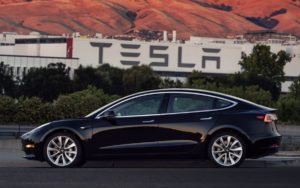 Electric vehicle batteries could provide 11GW of flexible capacity for the UK system by 2030, according to analysis by aggregator Open Energi.
Electric vehicle batteries could provide 11GW of flexible capacity for the UK system by 2030, according to analysis by aggregator Open Energi.
The firm says EVs therefore have significant grid balancing potential and that drivers would not be affected if technology can be harnessed to co-ordinate charging.
Open Energi’s analysis is based on one of National Grid’s Future Energy Scenarios, the most optimistic ‘two degrees’ forecast in which investment in green technology is high in order to avoid overshooting climate targets.
Under that scenario, it suggests that by 2020, with an estimated 1.6 million EVs on the road, some 200-550MW of turn-up flexibility would exist at different times of day. Some 400MW-1.3GW of turn-down flexibility could also be unlocked from smart-charging. Available volumes would depend upon charging patterns throughout the day.
If nine million EVs are on the road by 2030, the firm suggests optimal controlled or ‘smart’ charging could deliver up to 3GW of turn-up and 8GW of turn-down flexibility.
As such, EVs will have “a significant impact on infrastructure, systems and markets,” according to Dago Cedillos, strategy and innovation lead at Open Energi.
“There has been a lot of attention given to the ‘worst-case’ scenarios, but smart charging technology means EVs can be managed to the benefit of the system, and help accelerate our transition to a more reliable, affordable and sustainable energy future.”
Without smart charging, the additional generating capacity required for millions of EVs could be many gigawatts and would put local networks under severe stress.
However, Open Energi said while more capacity will be required for the electrification of transport, this could be a “single digit percentage increase” as a proportion of existing capacity.
Overnight charging would reduce system stress and ensure cars are ready for use in the morning, while owners could also be encouraged to help absorb excess power on the system – which is starting to become a challenge, particularly in summer given that there is now around 13GW of operational PV capacity in the UK.
As well as providing services to local and national grid operators, charge point operators and carmakers are now striking deals with suppliers to see if EVs can help balance trading portfolios, with imbalance charges set to double next year.
EV owners would earn a cut of the revenues for providing such services, but it remains to be seen whether they are willing to cede control of their vehicles to third parties. Some are sceptical. Others suggest it may have to be mandatory.
“Smart charging can only happen with the consent of the driver, and drivers will only consent if their car is charged and ready to go when they need it,” said Cedillos.
“A combination of artificial intelligence and data insight can help to automate charging without affecting user experience, so that the technology can learn and respond to changing patterns of consumer behaviour and deliver an uninterrupted driver experience.
“Getting this right is key to aligning the future of sustainable energy and transport.”
Open Energi outlines how it came up with the numbers here.
Related stories:
Lord Redesdale: Idea of EVs as energy storage is “complete crap”
Carmakers become aggregators as DNOs fear overnight EV boom
Nissan: Carmaker signals roadmap to energy services company
Flexitricity chief: UK has enough spare power electrify every car on the road
Government finds £20m for vehicle to grid development
Greg Clark calls for automakers and energy industry to collaborate on battery storage
As solar generation makes history, National Grid starts to feel the burn
Nissan and Eaton to roll out commercial scale battery in 2017
National Grid predicts big battery future
Energy storage ‘will wipe out’ battery storage
Tesla: People don’t engage with energy bills, but they will have to
Follow us at @EnergystMedia. For regular bulletins, sign up for the free newsletter.



